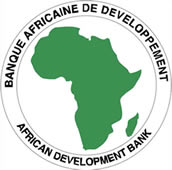 Private Enterprise Federation
Advocacy, Business Development and Market Access
Private Enterprise Federation
Advocacy, Business Development and Market Access
Advocacy, Business Development and Market Access
Private Enterprise Federation ICT Platform
Private Enterprise Federation ICT Platform :: Details
Road transport is by far the dominant carrier of freight and passengers in Ghana’s land transport system. It carries over 95 percent of all passenger and freight traffic. Most communities, including the rural areas are accessible by road transport. The…
Textile manufacturing in Ghana is an industry consisting of ginneries and textile mills producing batik, wax cloth, fancy printed cloth and Kente cloth. Firms have located in Ghana to serve local and regional markets with printed African patterned fabrics. The…
Agriculture is the main driving force behind Ghana's economy, accounting for approximately 42% of the country's GDP and employing 54% of its work force. Ghana is the world's largest cocoa producer after Cote d'Ivoire. Ghanaian cocoa is grown by small-holder…
The government of Ghana has encouraged the development of non-traditional industries over the past decade in order to diversify the country's export base. Horticulture has been a central and a major benefactor of these efforts. Four main horticultural enterprises can…
The health industry comprises all firms directly involved in the production and promotion of health care. These include all firms (both public and private) operating in the health market and are involved in the manufacturing of health products, provision of…
The country may be classified into three main agriculture zones. The forest vegetation zone: consists of parts of Western, Eastern, Ashanti, Brong-Ahafo and Volta Regions. The northern savannah vegetation zone: The Upper East, Upper West and Northern Region; the coastal…


































